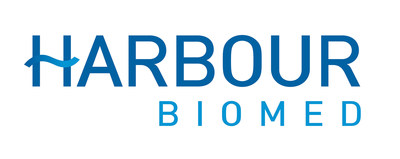CAMBRIDGE, Mass., ROTTERDAM, Netherlands and SUZHOU, China, Sept. 14, 2024 /PRNewswire/ — Harbour BioMed (the “Company”; HKEX: 02142), a global biopharmaceutical company committed to the discovery, development, and commercialization of novel antibody therapeutics focusing on oncology and immunology, announced the latest clinical data on HBM1020, a first-in-class, fully human anti-B7H7/HHLA2 monoclonal antibody, in patients with advanced solid tumors as a poster presentation (Presentation Number: 1010P) at the ESMO Congress 2024. The data has also been published online as an abstract on the ESMO website.
The results are derived from the dose-escalation, multi-center, open-label phase I trial (NCT05824663) that evaluates the safety and tolerability, pharmacokinetics (PK), and pharmacodynamics (PD) profiles of HBM1020 in patients with advanced solid tumors.
Highlights of the abstract include:
- Demonstrated favorable safety and tolerability of HBM1020 across all tested doses.
- HBM1020 was administered intravenously at dose levels ranging from 0.3 mg/kg to 30 mg/kg every three weeks (Q3W). All 17 patients completed the dose-limiting toxicity (DLT) observation period (21 days), and no DLT events were observed. The maximum tolerated dose (MTD) has not been reached yet.
- Most treatment-related adverse events (TRAEs) were grade 1 or grade 2. No TRAEs led to permanent discontinuation of the study treatment.
- No treatment-related deaths occurred.
- Promising PK profiles.
- PK analysis of HBM1020 demonstrated typical IgG behavior, with an elimination half-life of approximately two weeks in the dose range of 3 mg/kg to 20 mg/kg.
- Drug exposure increased in a nearly dose-proportional manner.
- Preliminary efficacy signals with disease control and tumor size reduction.
- Efficacy was assessed using the Response Evaluation Criteria in Solid Tumors Version 1.1 (RECIST 1.1).
- Of the 15 patients who received post-treatment tumor assessments, 7 patients (46.7%) achieved stable disease (SD), with two patients showing tumor shrinkage of 11% and 25%.
The data demonstrated excellent safety and tolerability profiles of HBM1020 in patients with advanced solid tumors. Further studies are warranted to explore the therapeutic potential of HBM1020 in selected solid tumors.
“B7H7/HHLA2 is a promising immune checkpoint target in solid tumors. We are pleased to share the latest clinical data of our first-in-class B7H7/HHLA2 antibody,” said Dr. Jingsong Wang, Founder, Chairman and CEO of Harbour BioMed. “These findings highlight the potential of HBM1020 to address the unmet medical needs of patients with advanced solid tumors. With its innovative biology mechanisms, we believe HBM1020 will emerge as a novel anti-tumor therapy, complementing PD-(L)1 therapies, particularly for patients who are PD-L1 negative or refractory.”
About HBM1020
HBM1020 is a first-in-class fully human monoclonal antibody generated from Harbour Mice® H2L2 transgenic mice platform, targeting B7H7/HHLA2.
B7H7, also known as HHLA2, is a novel immune modulatory molecule belonging to the B7 family. The B7 family is of central importance in regulating the T-cell response, making these pathways very attractive in cancer immunotherapy. Most of the validated targets in immune-oncology so far are related to B7 family, including PD-(L)1, and CTLA-4. The therapies against B7 family targets have already shifted the paradigm for cancer therapy with outstanding clinical benefits. As a newly discovered member of the B7 family, B7H7 expression is found non-overlapping with PD-L1 expression in multiple tumor types, which indicates an alternative immune evasion pathway besides PD-(L)1. In PD-L1 negative/ refractory patients, B7H7 potentially plays a critical role for tumor cells to escape immune surveillance. HBM1020 can enhance anti-tumor immunity by blocking the novel immune checkpoint target. Preclinical data demonstrated its immune activation and anti-tumor functional activities.
With its innovative biology mechanisms, HBM1020 presents a novel anti-tumor therapeutics complementary to PD-(L)1 therapeutics to patients, especially for PD-L1 negative/refractory patients.
About Harbour BioMed
Harbour BioMed (HKEX: 02142) is a global biopharmaceutical company committed to the discovery, development, and commercialization of novel antibody therapeutics focusing on immunology and oncology. The Company is building its robust portfolio and differentiated pipeline through internal R&D capability, collaborations with co-discovery and co-development partners, and select acquisitions.
The proprietary antibody technology platforms Harbour Mice® generates fully human monoclonal antibodies in two heavy and two light chains (H2L2) format, as well as heavy chain only (HCAb) format. Building upon the HCAb antibodies, the HCAb-based immune cell engagers (HBICE®) bispecific antibody technology is capable of delivering tumor-killing effects unachievable by traditional combination therapies. Integrating Harbour Mice®, and HBICE® with a single B cell cloning platform, our antibody discovery engine is highly unique and efficient for the development of next-generation therapeutic antibodies. For further information, please refer to www.harbourbiomed.com.
![]() View original content to download multimedia:https://www.prnewswire.com/news-releases/harbour-biomed-announces-the-latest-clinical-data-on-the-first-in-class-fully-human-anti-b7h7hhla2-monoclonal-antibody-hbm1020-at-the-esmo-congress-2024-302248282.html
View original content to download multimedia:https://www.prnewswire.com/news-releases/harbour-biomed-announces-the-latest-clinical-data-on-the-first-in-class-fully-human-anti-b7h7hhla2-monoclonal-antibody-hbm1020-at-the-esmo-congress-2024-302248282.html
SOURCE Harbour BioMed

Featured Image: Megapixl @ Ipopba
















